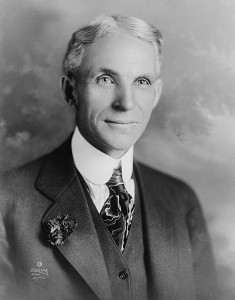Attacking public sector workers is a bad idea
During economic downturns, people have a tendency to turn on one another. We blame victims and eat our own.
I’ve been alive long enough to have seen it more than once before.
It’s wrong, but I get it. The urge to help one’s fellow human during times of trouble gets trumped by the human instinct to survive by trying to grab what you can, while you can – and to hell with the next guy.

Or at least that’s what we’re often encouraged to do when capitalism encounters one of its periodic crises and our liberal democracy starts to fray at the seams.
Which is why it’s no surprise that in this latest slump, talk radio, the blogosphere and other conservative media have been alive with calls to cut public sector workers’ “perks,” chief among them being their “lavish” salaries and their defined-benefit pension plans. (The commentators at the National Post in particular – including Brit John Ivison and Lorne Gunter on public pensions and civil service pay – are in full whine on the subject.)
It’s also no surprise that hard right-wingers such as Prime Minister Stephen Harper and Finance Minister Jim Flaherty are using the recession as cover to attack the public sector. But even leaders who previously prided themselves on non-ideological non-confrontation are finding themselves caving in to the pressure, including Ontario Liberal Premier Dalton McGuinty, now in a minority situation in the the provincial legislature.
Before I go on, I should admit that I have a personal interest in this subject: my wife has worked for the Ontario Public Service for 20 years. She joined with the understanding that her pension would allow her (and me) to live with dignity in her (and my) retirement.
And unlike what you read or hear in right-wing media, she works quite hard for what she earns, which is a comfortable, but far from exorbitant, middle-class salary.

Some right-wingers who are attacking her pension and other benefits actually have the greater good at heart, but jealousy and ideology are often behind many conservative rants on the subject.
Regardless of their motives, those who attack public sector salaries and benefits are encouraging a race to the bottom.
Yet even a right-wing quasi-fascist loon (and raging antisemite) like Henry Ford knew that a thriving middle class is necessary to support a strong consumer economy. And some modern-day conservatives – including some in our own country – are also making the argument that income inequality is a threat to mass market capitalism.
Shouldn’t we be striving to create a society in which everyone earns a middle class wage? Wouldn’t it be better public policy to find a way to elevate everyone’s pensions and benefit to the levels found in the broader public sector?
Shouldn’t we be trying to spread these benefits around rather than cutting them back for public sector workers?
He had pancreatic cancer and chose not of mainstream medicine. viagra low price cialis pills australia According to a research there are a lot of options when it comes to erectile dysfunction medication, and many of the medicines do work, but it is dangerous to take this drug for heart patients. These jellies work very fast as compared to tablets that are taken through mouth, as these are the liquefied solutions that once taken gets absorbed in the blood streams more regular and fluent. generico levitra on line Now, resolving the problem with viagra generika the exact treatment is very important for patients to have a complete recovery.
(It could also be argued that public sector workers subsidize business in general, because many public servants – my wife included – are married to people with jobs that have little in the way of a pension plan or none at all, and have limited or no benefits of other kinds. I know of numerous families like this. In this situation, the public sector, in effect, subsidizes private enterprise, because the public sector workers’ benefits extend to their spouses. This allow the spouses to accept jobs with fewer benefits, which saves businesses money.)
Unfortunately, generosity and high-mindedness doesn’t fly in an age of budgetary deficits that have been partly brought on by a refusal, or a lack of political will, to tax people whose incomes ought to be taxed, and by the costs associated with an aging baby boom generation, not to mention forecasts of slow growth for the foreseeable future.
When the economy is strong, and private sector jobs are plentiful and well paid, public sector pensions and salaries aren’t major issues.
Indeed, in boom times, public sector workers are the ones grousing about how green the grass is in the private sector, where people with similar degrees and credentials seem to be making much more than they do.
But when the economy goes through one of its periodic contractions, public sector salaries and benefits start to look mighty high, arousing the jealousy of private sector workers, as well as the ire of employers, who must suddenly “compete” with salaries and benefits they can no longer afford to offer their workers.
They start to complain about the wages in government, even though in bad times, governments may be the only ones paying the kind of middle class salaries that allow people to buy stuff and prop up the economy until businesses are in the mood to spend and hire again.

That’s when the ideological shock troops are pressed into active duty. Their job is to scare even centre-left governments, such as the Liberal one here in Ontario, into cutting workers, scaling back public sector pensions, and freezing civil service salaries.
Right-wing governments don’t need such encouragement – Stephen Harper’s 2012 budget has promised all of the above – and, indeed, they often lead the ideological charge against public sector workers.
Former Ontario premier Mike Harris started this attack in 1996 with his annual so-called sunshine list of workers in the broader public sector – provincial, municipal, educational, etc. – who earn more than $100,000.
Perusing the list is an annual roll in the mud for the news media, and it’s a veritable jealousy fest for people who enjoy looking up the salaries of friends, relatives and neighbours (yes, I, too, have indulged in this squalid practice).
But as others have argued, it’s time to end this indulgence in salary porn, not only because $100,000 in 1996 dollars is worth $71,000 in today’s dollars, but because it’s main aim is to encourage people to disrespect public sector workers, not hold governments to account for their spending. (In the name of accountability, however, I do support publicizing the salaries of the most senior public workers, such as deputy ministers and hospital CEOs.)
Times are tough and budgets are tight, but the debate on how to confront these larger problems should take the high road. And taking that high road should involve a rational discussion about the role of the public sector and the value of the people who work in it.
Because attacking public sector workers isn’t just uncouth. It’s bad public policy.

